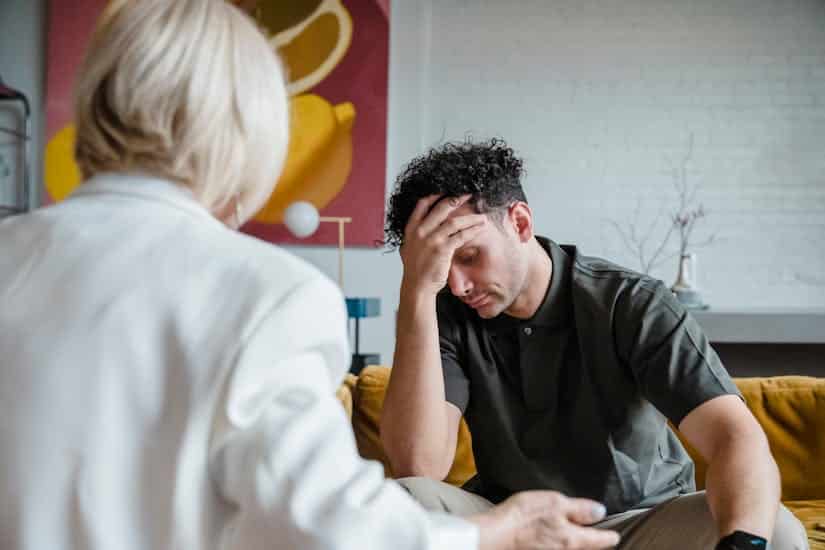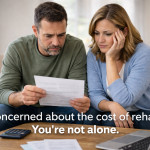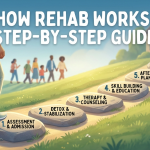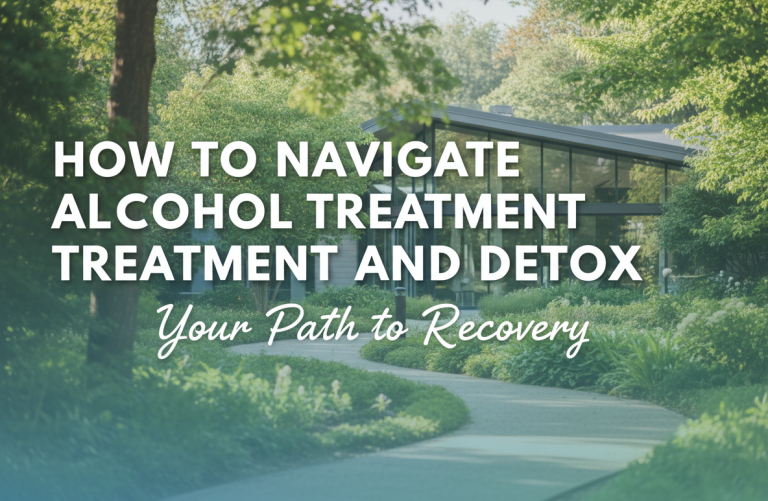Caring for someone who has depression can be difficult and at the same time, you can help enormously. Depression is a common illness in present society and knowing how to help that one loved person going through it is a very important aspect. In this guide, we will look at ways that you can support the people that you love in the face of depression.
Learn About the Definition of Depression
Often before asking for help, it is crucial to get to know what depression really is all about. Depression is just not about being sad; it is a major depressive disorder; a serious mental illness of mood, thinking, and behavior. It can be chronic lasting from weeks, months, to even years. If you remember that depression is a real mental health problem, you will be able to react to the situation with understanding rather than prejudice.
Grove Identified Symptoms of the Depression
Depression also comes in different forms and this information shows us when a friend or a family member is most likely to be in deep need of help. Common signs include:
- Low spirits or long-term low mood
- Fatigue and lack of energy
- Reduced pleasure in things which a person used to derive pleasure from
- Tremors, insomnia, increased or decreased appetite
- Difficulty concentrating
- Symptoms such as worthlessness or extreme guilt
- Thoughts of death or suicide
What are signs of depression may help someone who is desiring to help a friend or a family member know when that person needs help, though they may not reveal such feelings.
Inform Yourself about Different Types of Depression
Depression is a diverse disorder, which means that the individual experience differs in every person. Depression comes in various forms with different intensities and time frame. These include:

Major depressive disorder: The most frequent subtype, in which the patient experiences significant problematic symptoms.
Persistent depressive disorder (dysthymia): A chronic type of depression with some less severe features.
Seasonal affective disorder: Major depressive disorder characterized by symptoms worsening during certain seasons, generally the cold season.
Postpartum depression: A non-psychotic depression that affects some women after Childbirth.
Bipolar disorder: Abnormal condition in Bipolar disorder that causes a person to move between mania and depression in terms of their moods.
The following sections explain the different forms of depression so that you can offer more personalized assistance.
Depression and Anxiety Go Hand in Hand
Depression and anxiety are known to co-occur; a lot of people have been diagnosed with both illnesses. These conditions can have many similar symptoms, including, but not limited to, irritability or restlessness and the inability to focus. Knowledge about the connection between depression and anxiety will prevent you from misunderstanding conduct and provide the necessary support.
Learn What Causes Depression
But it is a disorder that develops from interacting genetic, biological, environmental, and psychological factors. Common causes include:
Genetics: Working on the computer for many hours a day may cause eye strain, headache, neck and shoulder pain, and depression if you have depression in your family.
Brain chemistry: Some of the causes include; Chemical imbalances of neurotransmitters.
Stress and trauma: Stressful and adverse life experiences including; loss, abuse, or chronic stress.
Medical conditions: It can be caused by chronic illness, or having a broken bone, severe headache, or backache.
Some insight into what leads to depression is helpful since it eradicates any possibilities of fractiousness that come with placing the blame squarely on the patient’s shoulders.
Offer a Listening Ear
To my mind, the most effective way to help a person with depression is to become a listener. Let them express their ideas and thoughts, particularly their anger but freedom to speak without any repercussions. Practice active listening by:
- Being steady with your eyes and your mind.
- Phrases you can use are, ‘I am present for you’ or ‘That doesn’t sound like a fun thing.’
- Not fashioning oneself as a problem-solver even when an individual thinks he/she has solutions to the problem.
There are moments when the main thing is simply to be there to support the other person and not say anything.
Encourage Professional Help
Your support is appreciated but what you need is a professional approach to the issue that is called depression. A little coaxing might come in handy to persuade the person close to you to consult with a mental health specialist. Psychotherapy, pharmacotherapy, or both are typical approaches to treatment. One has to take time to let them know that one is always strong enough to seek the help they need.
Still, if they are not sure how to do it, they might need assistance with organizing the search for a local therapist or just going to a first appointment.
Respect Their Boundaries
To support does not mean solving issues or making the individual drill himself into some form of action. It is actually important to honor their desire to be left alone occasionally. Not making them feel as though they should feel or act a certain way will essentially coddle them, this shows you believe in their healing process.
Help with Everyday Tasks
Depression affects the amount of energy a person has and how motivated the person is to do activities that seem regular. As simple as it may sound to give able help with chores it is an effective form of encouragement. You might:
- Wash the dishes, cook food, or clean the house
- Take them to run errands or drive them to appointments
- Assistance with child care or any other responsibility
- Such actions may alleviate several stresses and let the other person know that you are concerned and thinking about him or her in excellent ways.
Don’t Underemphasize Their Emotions
Everyone would like to comfort another person, yet words such as ‘be positive’ or ‘it cannot be that bad’ are irritating. It is dreadful to joke about depression because that is a severe disorder, and telling them that they do not have any reason to be sad will only make them think that they are all alone in the world. But please believe them by affirming their suffering and telling them that you are on their side.
Be Patient
Depression recovery is gradual. It can be a struggle and there will be times when your loved one appears to be ‘reverting’. Patience is crucial. Hug them and let them know you are proud of any minor accomplishment they were able to achieve because it is progress.
Take Care of Yourself
When dealing with a person who has depression he or she may require indefinite support and that can be very tiring emotionally. Make sure to prioritize your own mental health by:
- Budgeting in order to preserve one’s energy
- Defaulting to asking for help from friends, relatives or even a counselor
- Participating in self-care procedures
You cannot pour good things into other people’s lives when your own cup is empty. It enables one to take better care of the recipient since self-care enhances the capacity of the provider to assist.

Seeking Assistance for Someone
If you or a loved one require the service of a professional treatment center, contact Orlando Treatment Solutions. Supporting a friend in depression is not an easy thing and can demand one’s empathy, patience, and time. Through understanding the condition recognizing the signs of depression, and providing kindness, you are also part of their recovery. Contact our staff today to begin the journey to change at (321) 415-3213.



























